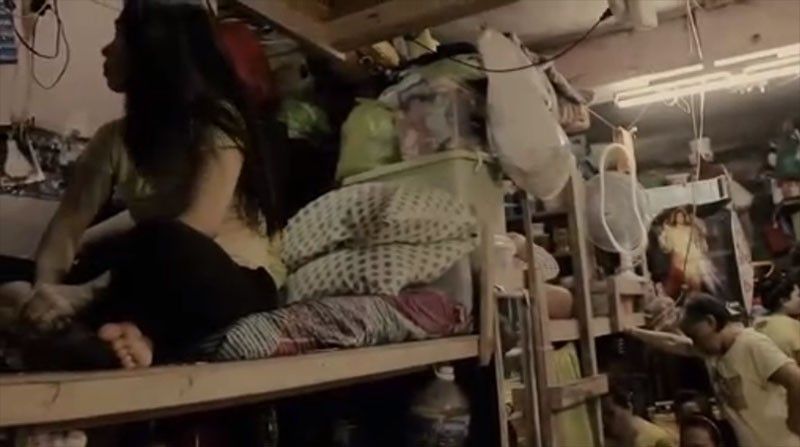Lullabies in Prison

ILOILO CITY, Philippines (Philippine Center for Investigative Journalism) — Until I saw the women’s dormitory of the Iloilo City Jail, I thought that anyone living in a cramped and confined space for years would be like a caged animal – vicious and violent. I was wrong.
In the past months, I have been filming in the jail and getting to know the inmates. Imagine more than 220 women packed like sardines in just 133 square meters of space. That’s about half a square meter of floor space for each one.
Nearly all the women in the jail have been accused of drug-related crimes. Except for two who have been convicted, they are all awaiting trial in the city’s slow-moving and understaffed court system.
According to a jail official, women stay there an average of five years because court dockets are packed and there are not enough prosecutors. Some had been detained ten years before being sentenced.
Many of the inmates are mothers who long for their children. What struck me was how they kept their dignity and humanity. They were gracious and generous. They were also neat and well-groomed. Some did regular manicures and pedicures. They were wearing makeup when I filmed them.
Leda
Leda, a 41-year-old mother of three children, has been in jail for six years. "When I first arrived in jail, I thought that it was just a dream," she told me.
"I had difficulty sleeping at night since it’s so crowded. In my cell, there are 50 inmates and at night, most of the inmates sleep on the floor. Those who can’t sleep at night usually sleep at noontime. All of us share only one comfort room which has a single toilet and large water drum for bathing.
"My family rarely visits me since they were busy, but we still communicate by phone. There is not a minute when I don’t miss my kids. I pray that my case will be resolved soon so I can be reunited with them."
Lila
"I have to wake up at 3:30 a.m. to take a bath since that’s the only time I can use the bathroom without disturbance," said Lila, aged 33, who has been in jail for two years. "I’ll dry my hair and then I’ll go back to sleep. I would wake up at 7 a.m. for a religious activity and at 8 am there would be a headcount, then we would go back to our cell.
"The daily visitation hours is from 1 p.m. to 5 p.m., but it does not apply to me since I don’t have any visitors since my family is based in Manila. It’s not worth it for them to come and visit me. Life in prison is not easy, all that stress and being far away from my family is taking a toll on me, but I’m trying my best to cope."
The Iloilo women’s jail is right in the heart of the city, tucked away in the compound of the police headquarters on busy Gen. Luna Street, right across the bustling University of San Agustin.
The jail was built for 28 inmates, but, since 2002, when Congress passed a new law raising the penalties for drug crimes, the number of those behind bars has risen, resulting in overcrowded jails throughout the country.
Telling the story of women in Iloilo City Jail
When the Duterte administration cracked down on drug crimes and detained tens of thousands more, jails all around the country have become so crowded that in many of them, inmates take turns sleeping or sleep sitting down.
This video tells the stories of the women of Iloilo jail. Their ages range from 18 to 69, although most of them are mothers with young children. Their identities are concealed to protect their families whom they love and miss.
I focused on the Hilway Art Project, which provides 150 women inmates opportunities for livelihood and art therapy. The women make what they call “Inday dolls” out of fabric. Each doll comes with a favorite quote chosen by the maker and they are sold in trade fairs, popup shops and online through Facebook.
Leda says the project has become part of the women’s lives. "It helped us a lot in our financial needs since most of us are mothers and we are still supporting our children’s needs. We have learned a lot in this project and it has helped us with our talent and skills. The Hilway project has helped us become better persons."
(Ethel Mae Reyes is a filmmaker and educator. She currently teaches at the Fine Arts Department of the University of San Agustin in Iloilo City. She produced this video with a grant from the PCIJ Story Project.)
- Latest
- Trending





























